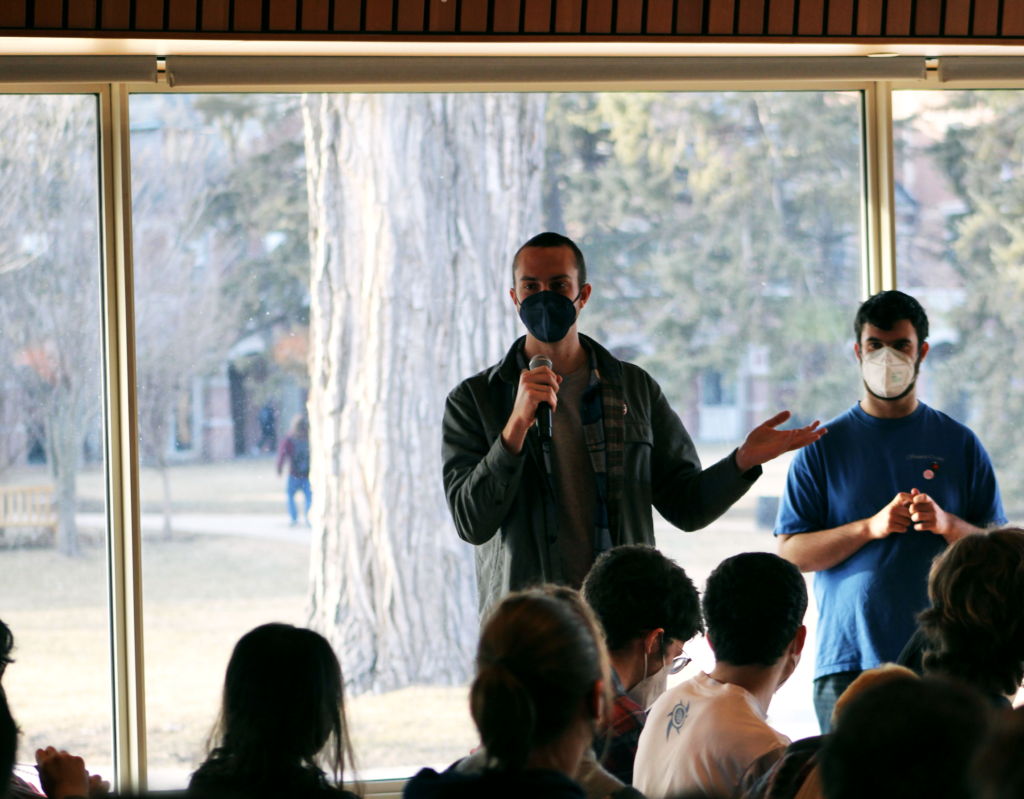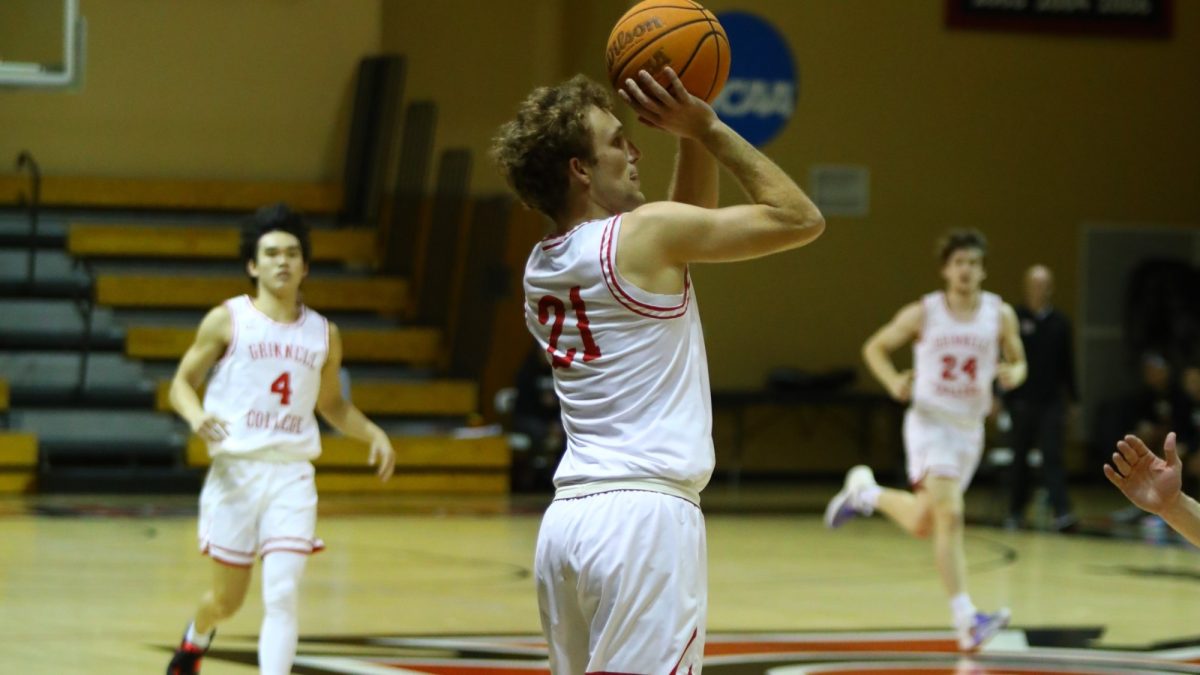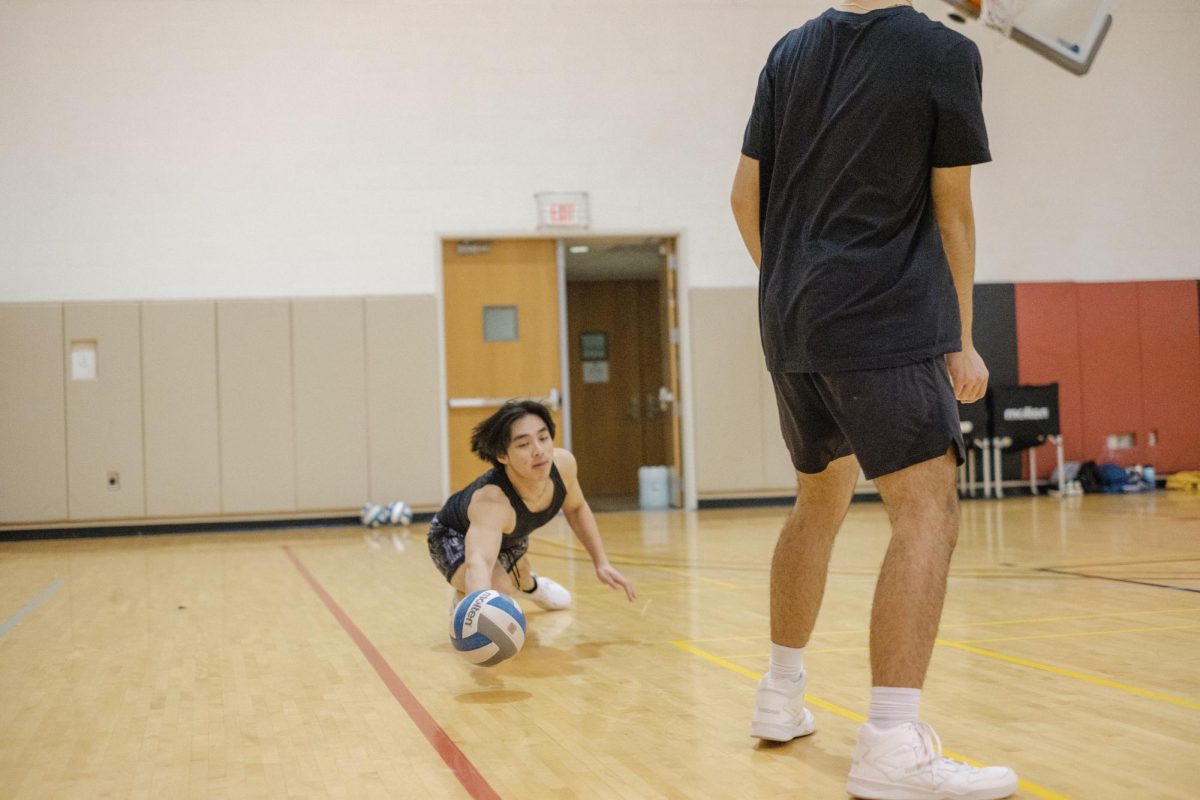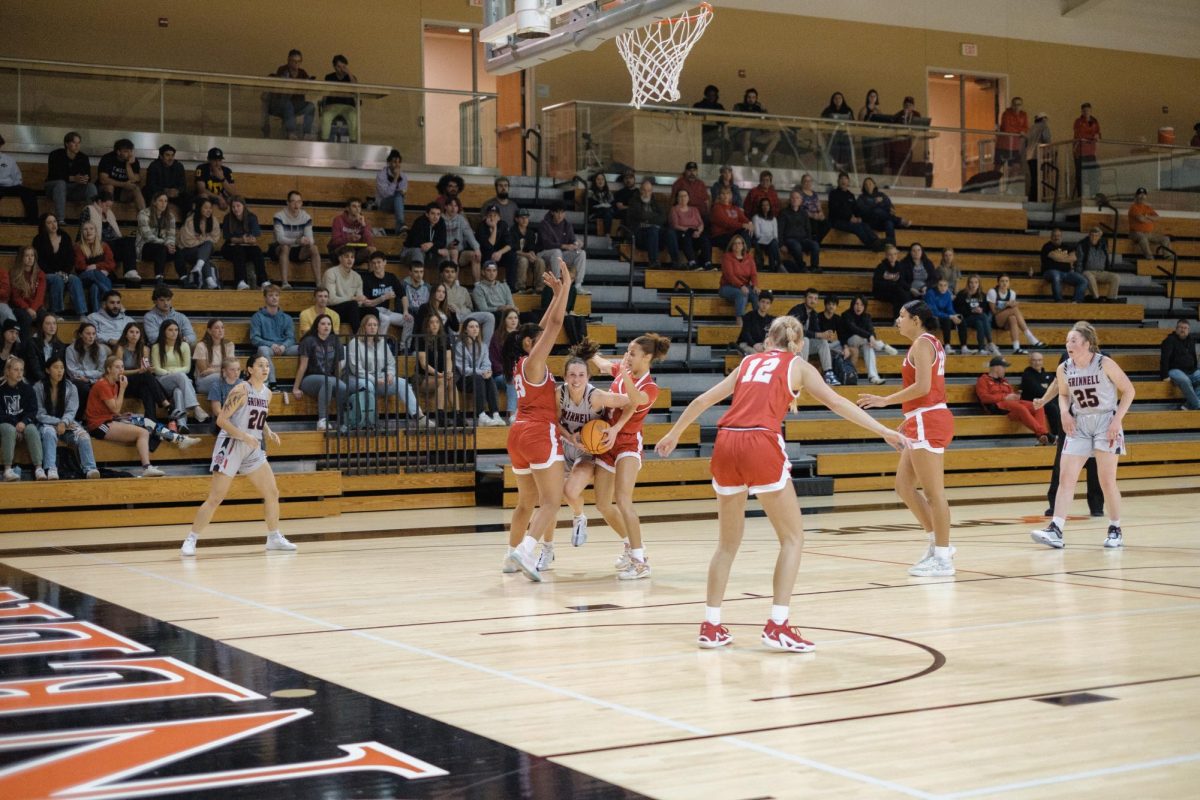Grinnell College and the Union of Grinnell Student Dining Workers (UGSDW) have agreed to a neutrality agreement as the union plans for an NLRB vote by student workers to expand the union’s representation to all hourly student employees.
Additionally, the College will not challenge or delay the subsequent expansion vote, the agreement read by the S&B stipulates. In return, the agreement also states that UGSDW will not strike or violate the Student Handbook for the term of the agreement.
An election, which will take place at an undetermined date this spring, will allow eligible student workers, defined as degree-seeking, hourly employees of the College who do not work exclusively in Dining Services (i.e. workers without a job not already represented by UGSDW), will vote by mail-in ballot on the union expansion.
“Honestly, a lot of people don’t realize how historic this is going to be,” said Nora Kohnhorst `25, UGSDW executive board member-at-large.
“This will be the first all-campus undergraduate union in American history. There are other colleges that are trying to do the same thing right now, and this victory will be a victory for student workers, organizers, student labor unions across the country.”
On Friday, March 4, the Board of Trustees ratified a neutrality agreement with UGSDW, which indicated it would file a petition for election to expand the union with the National Labor Relations Board (NLRB).
The signing occurred a day after UGSDW stated in a general meeting that it would file a petition for union expansion with the NLRB, facilitated by the neutrality agreement, which was approved, also on Thursday, by the Board of Trustees.
President Anne Harris declined the opportunity to comment, citing the neutrality pledge included in the agreement.
This will be the first all-campus undergraduate union in American history. There are other colleges that are trying to do the same thing right now, and this victory will be a victory for student workers, organizers, student labor unions across the country. – Nora Kohnhorst `25, UGSDW executive board member-at-large
UGSDW and the College administration began negotiations over a possible neutrality agreement on Jan. 13. The agreement stated that it will “establish a fair and expeditious process” that would allow student workers to vote “free of unlawful interference or undue influence,” if they wish to expand the Union to be the collective bargaining representative for all student workers at Grinnell. On Friday, March 4, the Board of Trustees announced that it would accept the neutrality agreement.
The agreement outlines actions on both the side of UGSDW and the College that will “maintain a relationship throughout this process that is respectful to both parties and the College community as a whole,” the agreement states. The agreement will protect the vote on expansion from interference by the College.
“We knew that it was a question of us winning a union either sooner or later and the College could choose to drag out the process and make it a very expensive … kind of a conflict heavy or adversarial process,” UGSDW President Keir Hichens `22.5 said. “We wanted to ensure that the student workers’ voices would be heard in a fair and free election, and that’s why we came to the College and we’re glad that they’ve collaborated with us on this agreement.”
Hichens also said he thought that the agreement benefited College administration as well as UGSDW members.
“This agreement sets a good standard for our shared values and shared belief in democracy,” Hichens said.
The neutrality agreement will not immediately set union expansion into action, but it will allow for the next step, an election in which all eligible student workers will vote on union expansion. Student workers who are employed exclusively by Dining Services will not be able to vote in this election, and Community Advisors (CAs) are also excluded, because they are not hourly employees.
Because the neutrality agreement was ratified, there will most likely not be a hearing process like there was in 2018 when UGSDW made a similar push for expansion, because of a consent election agreement which is attached to the neutrality agreement. This restates much of the content of the neutrality agreement, such as voter eligibility and election processes, and replaces what would traditionally be covered in a hearing with the NLRB, according to Hichens.
We wanted to ensure that the student workers’ voices would be heard in a fair and free election, and that’s why we came to the College and we’re glad that they’ve collaborated with us on this agreement. – Keir Hichens `22.5, UGSDW President
The neutrality agreement also stipulates open, separate forums for students, staff and faculty, which will take place next week on a currently unspecified date and will allow the College and UGSDW to answer questions with equal speaking time about the expansion.
The previous expansion attempt in 2018 ended when UGSDW withdrew their petition in order to avoid reversing the legal precedent that student workers could unionize, because, according to Hichens, they did not feel that the NLRB would support them against the College administration which argued that student employees were not considered to be workers.
This time, though, Kohnhorst said she feels confident at the prospect of expansion.
“We’re going to expand whether or not the College agrees to work with us or not, but I’m excited by the prospect of the College’s cooperation and how willing Anne Harris has been to discuss expansion with us.”
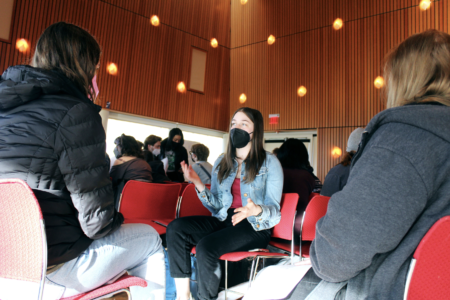
Editor’s note: Hichens is the S&B podcast editor and expansion committee chair Isaiah Gutman ‘23 is an S&B copy editor. Neither were involved in the writing or editing of this article.
Update 3/4/2022 10:07 a.m.: An earlier version of this article stated that the College and UGSDW were “cooperating” to expand bargaining power. The article has been corrected to reflect that the College has agreed not to interfere with a student vote on the matter of union expansion. The article was also updated to include a third-party source on
Update 3/4/2022 10:53 a.m.: Clarified in introduction paragraph that the student worker vote on expansion is an NLRB vote in which eligible student workers will participate, not one in which all students will vote




















































